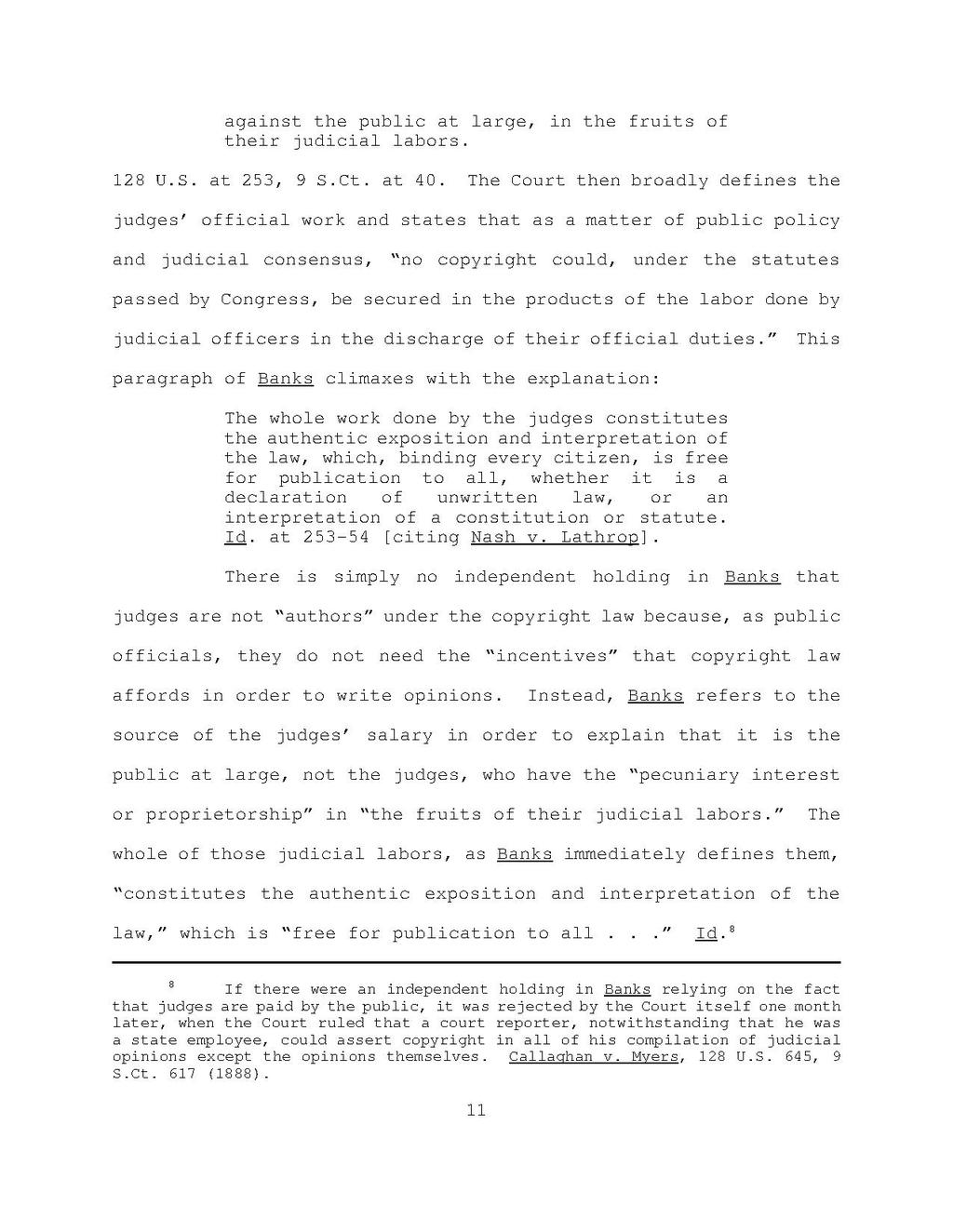against the public at large, in the fruits of their judicial labors.
128 U.S. at 253, 9 S.Ct. at 40. The Court then broadly defines the judges' official work and states that as a matter of public policy and judicial consensus, "no copyright could, under the statutes passed by Congress, be secured in the products of the labor done by judicial officers in the discharge of their official duties." This paragraph of Banks climaxes with the explanation:
The whole work done by the judges constitutes the authentic exposition and interpretation of the law, which, binding every citizen, is free for publication to all, whether it is a declaration of unwritten law, or an interpretation of a constitution or statute. Id. at 253-54 [citing Nash v. Lathrop].
There is simply no independent holding in Banks that judges are not "authors" under the copyright law because, as public officials, they do not need the "incentives" that copyright law affords in order to write opinions. Instead, Banks refers to the source of the judges' salary in order to explain that it is the public at large, not the judges, who have the "pecuniary interest or proprietorship" in "the fruits of their judicial labors." The whole of those judicial labors, as Banks immediately defines them, "constitutes the authentic exposition and interpretation of the law," which is "free for publication to all . . ." Id.[1]
- ↑ If there were an independent holding in Banks relying on the fact that judges are paid by the public, it was rejected by the Court itself one month later, when the Court ruled that a court reporter, notwithstanding that he was a state employee, could assert copyright in all of his compilation of judicial opinions except the opinions themselves. Callaghan v. Myers, 128 U.S. 645, 9 S.Ct. 617 (1888).
11
